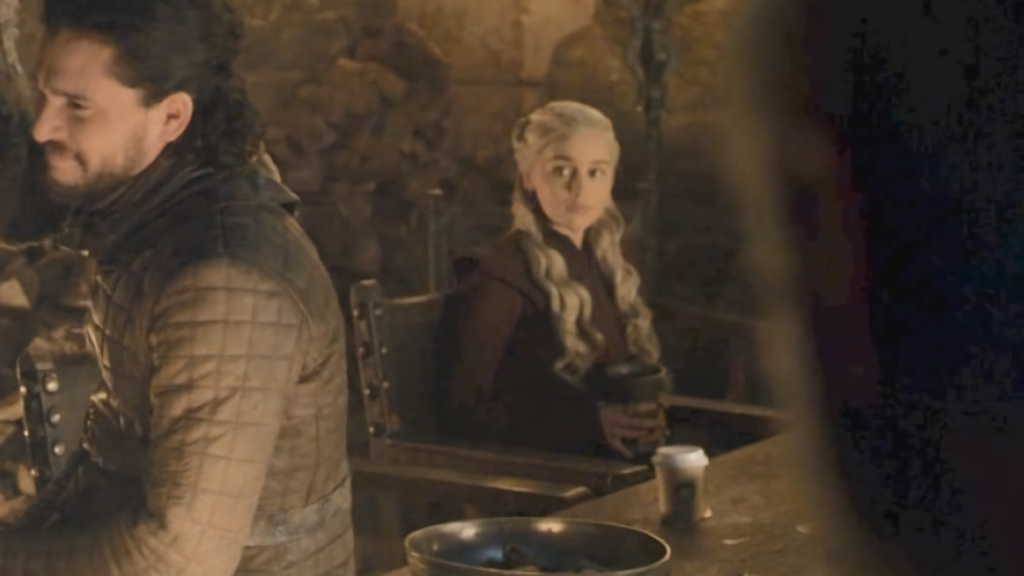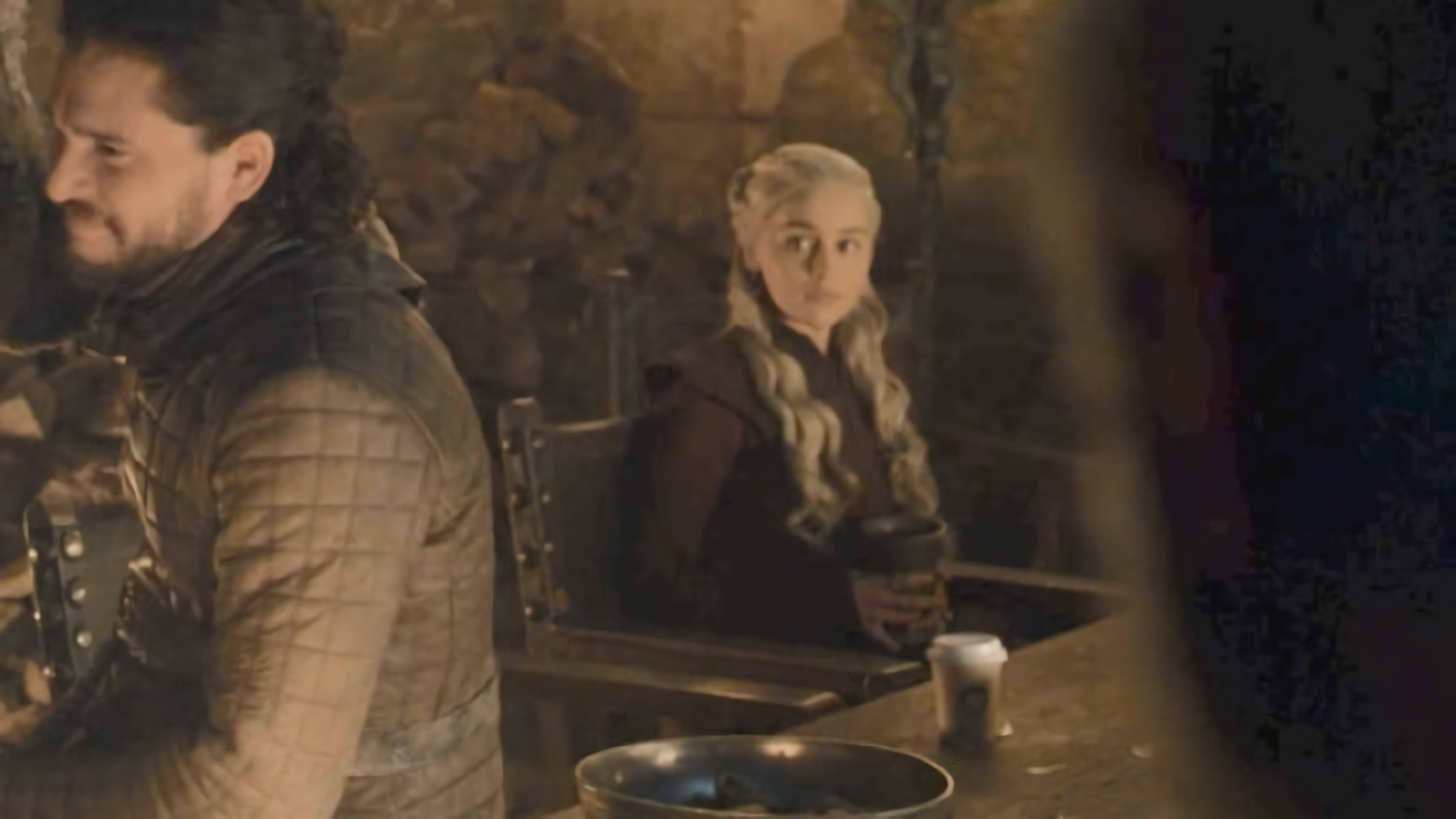
Expecting absolute perfection from TV shows and movies is unrealistic
By Bex Peterson, Editor-in-Chief
Of all the internet rages I’ve witnessed over the final season of Game of Thrones, the one that makes the least sense to me is the absolute frothing fury over the infamous coffee cup left on the table in episode four (and, yes, the water bottle in the finale). Should they have been there? No. Is it, as many people have described, incontrovertible proof that the executive producers “definitely didn’t care” about the quality of their final season by making some kind of easily avoidable mistake? Absolutely not. We accept the occasional typos in our newspapers and printed books despite the amount of time and effort that goes into editing them—why should film and television be any different?
I’ll admit I get a bit defensive on this topic because as someone who used to work in film, I know what the days are like. I think people get this image of a film set as some kind of glitzy, quiet workspace where actors lounge in luxury between takes while directors carefully craft every shot with painstaking attention to detail and time is no object. In reality, people should be picturing something like a construction site. Actors and crew need to be able to eat and drink between takes, and snacks are often brought around set to keep everyone’s blood sugar up during the long hours of shooting. One of the most oft-repeated jokes when set-ups are running behind schedule is “we’ll fix it in post,” meaning that any mistakes caught on the day will have to be rectified in post-production. Because of tight schedules, 15 to 20-hour days making everyone a bit loopy, and the general chaos of film, post-production has to deal with a lot of fixes.
A shot goes through many different hands before a final version is delivered. I guarantee that production and post-production had to filter out plenty of immersion-breaking errors along the way. The coffee cup, with its neutral colour palette, would have blended right in with the rest of the scene and would have been incredibly easy to miss in the light of much bigger concerns and fixes to focus on.
The argument people often make for why this error is particularly egregious is the show’s massive budget—which, given the nature of the mistake, makes absolutely no sense. It’s not like they spent $15 million per episode on a designated “coffee cup sniper” in production or post.
For some much-needed perspective, The Lord of the Rings trilogy had a budget of $94 million; adjusted for inflation, this equates to about $140 million today. They had comparatively more time and money to produce a shorter product than the final season of Game of Thrones, and that fantasy trilogy is rife with mistakes: Trucks ambling along in the background, forgotten coloured contact lenses, “dead” orcs sitting up after Aragorn jumps over them, so on and so forth. Hell, even Academy Award darling Gladiator infamously gave us chariots flipping over to reveal gas canisters underneath. These things happen. It’s not a sign of laziness, it’s what we get when fallible humans make fallible products. Given the time and effort that goes into the more important parts of production—the writing, the visual effects, the attention to detail in set and costume design—it’s wildly unrealistic and, quite honestly, grossly unfair to expect a flawless product. I say let the person who’s never made a mistake at work be the first to cast Twitter shade on this one.
In the grand scheme of things, a coffee cup is not a big deal. The Game of Thrones production team handled the gaffe with grace and good humour, and it’s already been edited out so the coffee cup won’t appear in DVD box sets and digital copies. It’s really your choice whether you decide to laugh and enjoy the thought of Daenerys Targaryen sipping on a latte or let something so small and petty ruin the show for you.
Want another perspective on this issue? Check out “Game of cups: A mistake that should never happen in film or television.”


